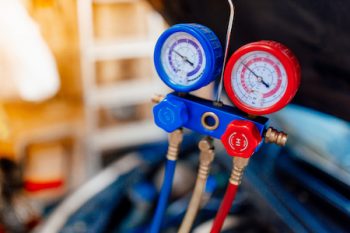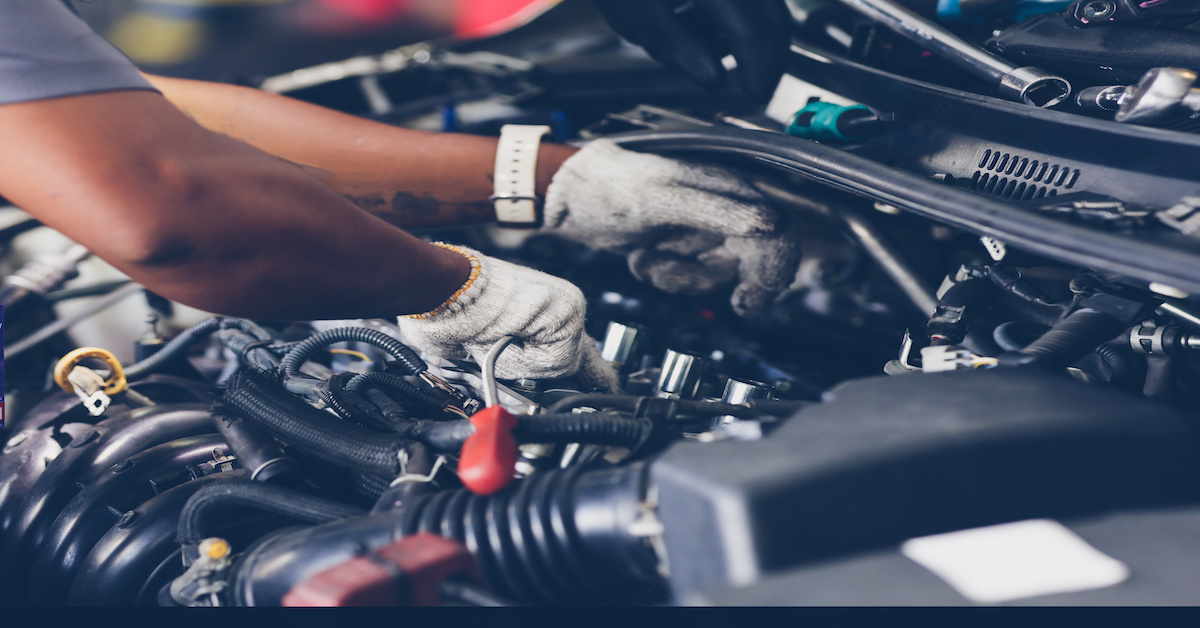Auto air conditioning is one of the most essential features of your car. It keeps you cool in the summer and protects you from the freeze during the cold months. Over time, your ac unit will likely experience issues due to wear and tear. This blog post will discuss five common problems with auto air conditioners and what your ac repair professional can do about it!
Refrigerant leak
As you may already know, the air conditioning system in your car is designed to cool down the interior of your vehicle. However, if there is a leak in this system, it will be unable to perform its function and can lead to an increase in temperature inside your car as well as a decrease in gas mileage. Not only does it make the air conditioner not work, but refrigerant leaks are also dangerous and could lead to an explosion if left untreated.
If you want to avoid these potential problems, call Pete’s Auto right away so we can inspect your ac unit and repair any leaks as soon as possible! Our technicians will be able to find where the leak is coming from and fix it immediately so that you don’t have to worry about this problem anymore.
Compressor issues
The most important part of any air conditioning system is the compressor. If you’re having trouble with your car AC, it may be time to replace the compressor. Not only can a faulty compressor lead to major problems for your engine and transmission, but it could also result in higher fuel consumption. Most people don’t realize that their AC unit has a separate component called the compressor. The main purpose of this component is to pump refrigerant into and out of the evaporator core, which makes cooling possible in your vehicle.
In order for you to get a proper diagnosis on whether or not your car’s AC needs repair, you need to know what symptoms signal an impending failure. One way that you can tell if there is something wrong with your car’s AC system is by checking for leaks around the outside vents and inside the cabin at night when everything cools down (if no condensation forms on these areas then there are likely problems). You should also check for signs like unusual noises coming from under the hood after starting up or turning off the engine as well as smells such as burning rubber.
Airflow problems
Sometimes ac units will not entirely turn on due to low refrigerant levels. You can tell if this is the case by turning on your ac unit when it blows hot air out of the vents. Another issue that could cause a lack of airflow is debris in front of your condenser. It may be time to clean up with some compressed air if you have a buildup! If you’re experiencing this issue, take your vehicle to be inspected by a professional as soon as possible.
Incorrect refrigerant type
One of the more severe ac problems you can have is using the incorrect refrigerant. Not only will this cause your car’s air conditioning process to stop working, but it could also damage your air compressor and condenser! This can be solved by having a professional fill up your ac unit with the correct refrigerant. If you plan to do the repairs on your own, make sure that you fully understand what type of refrigerant your car uses before doing any repairs yourself.
Improper electrical connection
If your air conditioning system still isn’t working even though none of the above issues is apparent, you may have an electrical problem. If you notice any weird sounds when turning on your AC or feel that it takes longer than usual to cool down, you will likely have an electrical problem. This can be solved with a simple repair done either at home or at a mechanic shop.
How do I know my car ac unit has problems?
Your vehicle’s ac unit can suffer various issues, and these will become evident whenever you’re driving. Some of the common symptoms of a faulty car ac unit include:
– The ac is blowing hot air or not blowing at all
– Your windshield fogs up quickly due to poor airflow distribution
– The ac unit is not working at all
– You hear loud noises coming from the ac unit when turning it on
– The fan speed is either too low or high and not adjustable by any means.

What should I do when my car’s air conditioning system has a problem?
First, you should turn off your car ac system and open the windows to help dissipate heat. You can also drive with your car’s air vents closed until you reach a mechanic or an auto shop. A professional technician should be able to diagnose the issue with your car’s air conditioner unit and repair it quickly.
Can I repair my ac system on my own?
While it is possible to repair a faulty air conditioner unit on your own, it is not recommended. Even if you have prior experience with repairing cars or working in auto shops, there could still be other issues that go beyond the scope of your knowledge. It’s also important to note that refrigerant cannot just be bought at any store and requires certification and licensing to work with it.
Need Car AC Repairs?
If you need auto ac repairs, you should take your car to a qualified technician for help. At Petes Auto, we have qualified mechanics that will examine your vehicle to offer an accurate diagnosis. Our auto air conditioning repair Thousand Palms rates are competitive, so you shouldn’t worry about blowing a budget. Call us today or visit our website for a free quote!
FAQ
What is the most common problem with air conditioning units?
One of the most common problems with ac units is leaking refrigerant. This can be solved by having a professional fill up your car’s air conditioning unit with the correct type.
How do I know if my compressor needs to be replaced?
A faulty compressor will show itself when you turn on your vehicle’s air conditioner, and it won’t turn on. If you hear strange noises when turning your car’s air conditioner on or notice that it isn’t blowing cold air like usual, this is another sign of a faulty compressor.
What are R134a and R12?
R-134A is a newer type of refrigerant that was developed to replace R-12. Both types are now banned from production, but you can still find cars with either one installed in their ac units.

